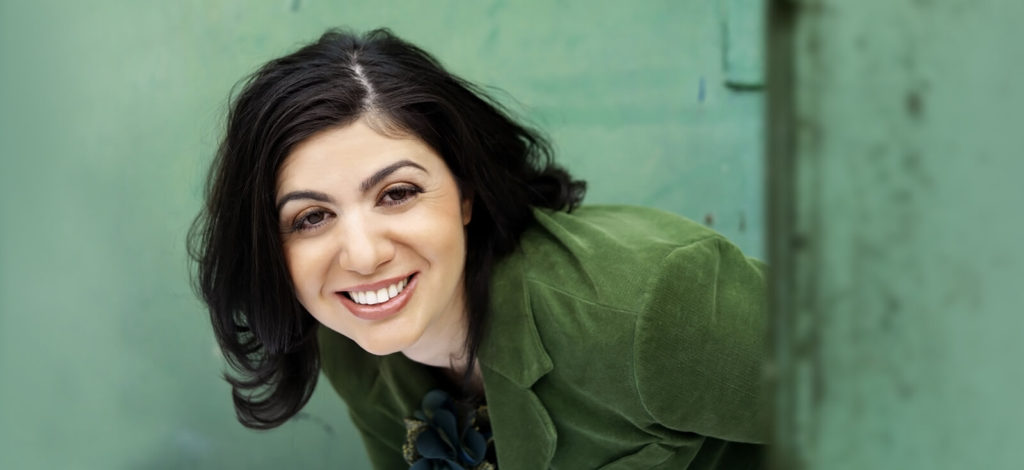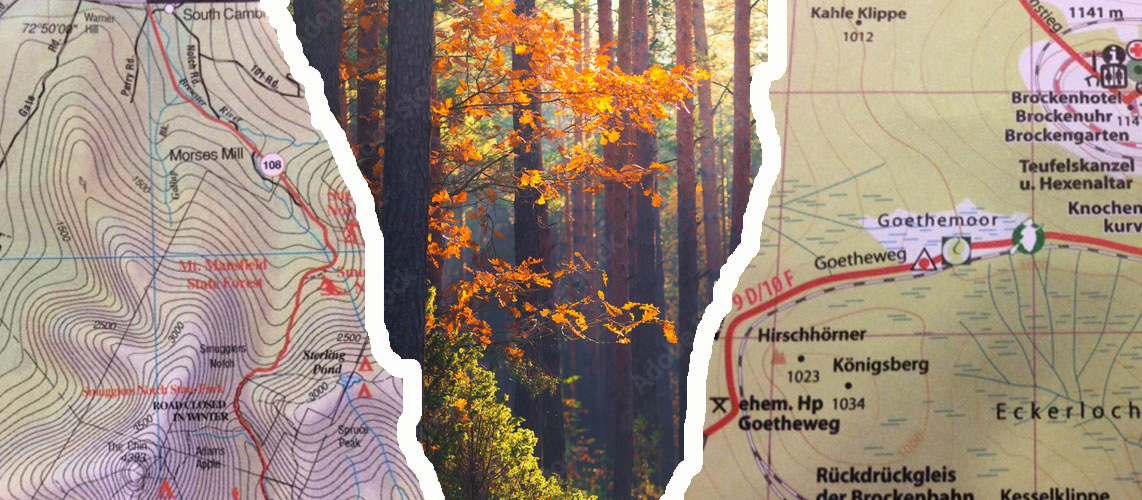More contemplations from the borderland: Excerpts from Chapter 7

In the Middle Ages, Heimat was a legal term that meant someone had the right to settle, live, and follow their trade in a particular location. The word still has the meaning of home place, or the place a person is from[1]. But most of the meaning of Heimat lies below the surface of this piece of geographic information, like the bulk of an iceberg. Heimat is inseparably tied to a person’s feelings about that geographic place: feelings of belonging, of being understood, of connectedness with a particular landscape and familiar people, of not being a stranger. People who leave their homeplace, if they are lucky, find or create a second Heimat. Sometimes they feel heimatlos and miss their Heimatland. Always there are gaps between the old Heimat and the new: the absence of one’s native language, the separation from loved ones, the absence of the smell of fresh Brötchen. Even the loveliest second Heimat cannot paper over these gaps, but that is not the point: Heimat is not about loveliness but about, well, Heimat– one’s place of belonging.

Something about all this made me think of an interview with the writer and journalist Hatice Akyün that I had read in a magazine. Akyün was born in Turkey but came to Germany as a small child in the early 1970s, when her father took a job in the Ruhr region’s coal mining industry[2]. When the interviewer asked her what Heimat meant to her, Akyün went into loving detail describing the mine workers’ neighborhood in Duisburg where she had spent her childhood and youth. Integration into German society was no big deal for her: “I had great neighbors, an outstanding teacher, wonderful German friends.” Her friends’ parents helped her with homework and invited her over at Christmas; nobody worried about who was Turkish and who was German or what religion anyone followed. All the men in the neighborhood worked in the mines, and that was what mattered.
Perhaps because of these early experiences, Akyün was later able to write with a light touch, even humor, about life in Germany as a person with Turkish roots. For many others with her ethnic background – or any background that comes with dark eyes and hair and a darker skin tone than that of ethnic Germans – humor was probably not the first approach that came to mind. Looking “different” in a fairly homogeneous country could leave one feeling singled out and often slighted, or worse. Even now, almost forty years later, I remember vividly an incident when some teenagers in the street yelled “Kümmeltürke” (literally “caraway Turk,” a term with very derogatory connotations) after my friend Farschad, whose father was Iranian.
In the interview, Akyün reflected on the summer of 2006, when enthusiastic support for the German national soccer team during the World Cup turned the whole country into a Sommermärchen[3](summer fairytale): “I loved this World Cup. I thought the atmosphere was outstanding. I walked along the fan miles and thought: What a great country. This is my country.”
Sometime after that, things changed – so much that Akyün was feeling unwelcome in this country she loved and, by the 2011 interview, was seriously considering leaving it for Turkey, even though she had not lived there since she was three. She described how a well-known author had claimed that Duisburg’s Turkish migrant population was at fault for that city’s dire financial situation, and the local audience had responded enthusiastically. In Duisburg, where her father had lost an arm in a mine accident and where so many coal and steel workers she knew – the Gastarbeiter(guest workers) whom Germany had explicitly invited starting in the 1960s – had sacrificed their health and sometimes their lives in the industries that formed the city’s economic backbone. In Duisburg, the city Akyün considered her hometown, and where she herself had held readings in front of full houses and had gotten people to relax and laugh with her about cultural differences instead of seeing them as causes for fear or division. In Duisburg, life for immigrants had changed.
Now, after TV or radio appearances, Akyün was getting emails unlike any she had gotten before: Emails chastising her if she had dared to say anything critical about Germany, comments suggesting she did not belong in this country. One man wrote that had it not been for Germany, Akyün would now be stuck in Anatolia, herding sheep. “These emails were not from extremists,” she noted, “but from regular Germans.” The man who made the sheepherding comment had signed with his full name and contact information. Increasingly, Akyün found herself referred to as an Ausländer, a foreigner.
She was losing her sense of humor, Akyün told the interviewer, and that made it hard for her to live in her beloved Germany, the place she considered home.
So far, Akyün has stayed. For several years, she wrote a weekly column called “Meine Heimat” for the Berlin-based newspaper Der Tagesspiegel. These days, she facilitates panel discussions and gives presentations on migration and integration.
Akyün’s story reminded me that buried below the straightforward meanings of Heimat, there are feelings about national identity and patriotism that all too easily spill over into exclusion and even disdain for anyone “other.”
The Nazis had seized on this aspect of Heimat and almost managed to poison the term beyond repair. For decades after World War II, young Germans were embarrassed to use the word and avoided it like the plague, except in combined terms like Heimatstadt (home city) or Heimweh (missing one’s home). The rise of the Heimatfilm movie genre with its overabundance of dirndls, bright green Bavarian mountain scenes, and kitschy storylines did little to redeem the word.
It seemed that Heimat had run its course.
But it hadn’t. In the time leading up to the first leg of my border expedition, I had noticed a kind of revival of the term in the public realm. Most often the undercurrents of patriotism and German national identity were close to the surface again, often with explicit animosity to foreigners. Just the year before, in August 2015, an initiative named “Zukunft Heimat” (Heimat as future) had established itself in the federal state of Brandenburg[4]. Together with the Alternative for Germany (AfD, the far-right political party) , the club organized protests against providing shelter to refugees. The initiative rapidly formed cross-connections with like-minded groups and spread to other federal states. In its outreach materials, the initiative presented itself as a Heimatverein (a social club that cultivates local and regional traditions) and artfully mixed its anti-foreigner messages in with announcements for harvest festivals and bicycle outings. In Saxony, Initative Heimatschutz (Heimatprotection) was protesting against Überfremdung, a term denoting a swamping by foreign influences.
The loudest anti-foreigner protests seemed to be coming from places in the eastern part of Germany. I knew that during GDR times, foreign workers and students were kept at an arm’s length. They were housed in separate apartment complexes and did not have much interaction with the general population. I thought of a conversation I had had with a teacher from West Berlin about the time after the fall of the Berlin Wall, when teachers from East Berlin were for the first time teaching at schools in the West. Many of them seemed downright shocked at the number of students with Turkish or Arabic ethnic background in the West Berlin schools.
But that was almost thirty years ago, and what Hatice Akyüen had experienced was much more recent, and not only in Berlin but also in places like Duisburg, in the west.
I had a feeling that all of these currents – Heimat, identity, belonging – would be with me for the rest of this journey, so I decided to let them rest for the moment. Ahead of me, the Elbe was making a wide turn to the right and southwest now, and I could see some red-tiled roofs behind between the greens of the levee and some woods. This must be Rüterberg, the little village that had declared itself an independent republic the day before the Berlin Wall fell.
[1]Some would translate it as “homeland,” but the word Heimatdoes not in itself refer to a country or a nation. In American English usage, the term “homeland” for “Heimat” seems misleading at least since the establishment of the Department of Homeland Security in 2002 and the spy thriller series “Homeland” (2011).
[2]In far-western Germany.
[3]The name of a documentary film about the 2006 Soccer World Cup.
[4]Part of the former GDR, or East Germany.

Thought provoking and topical. Thank you Kerstin.
Thank you Eric – glad to know you are still reading along!
Super interesting, thought provoking and of course brilliantly written. Thanks for sharing!
Thank you Paige, for reading and for your comment!